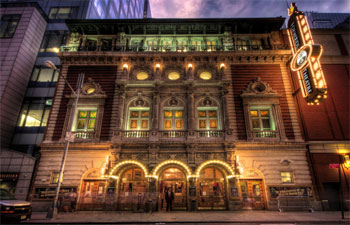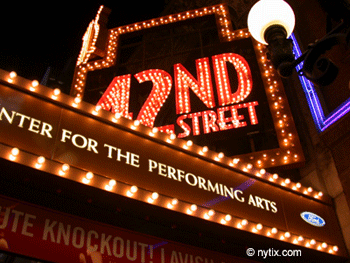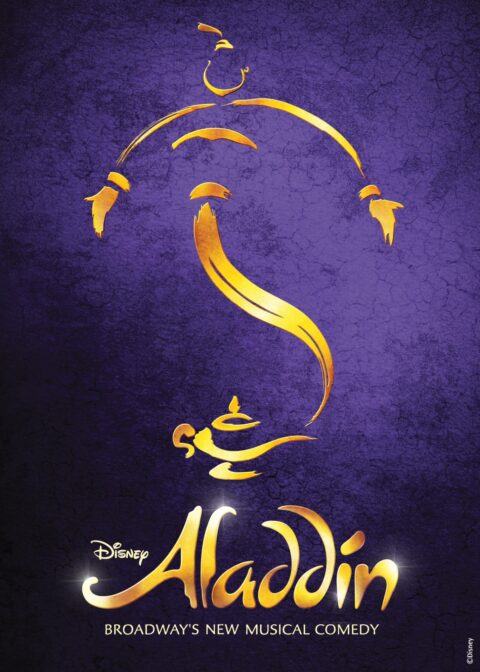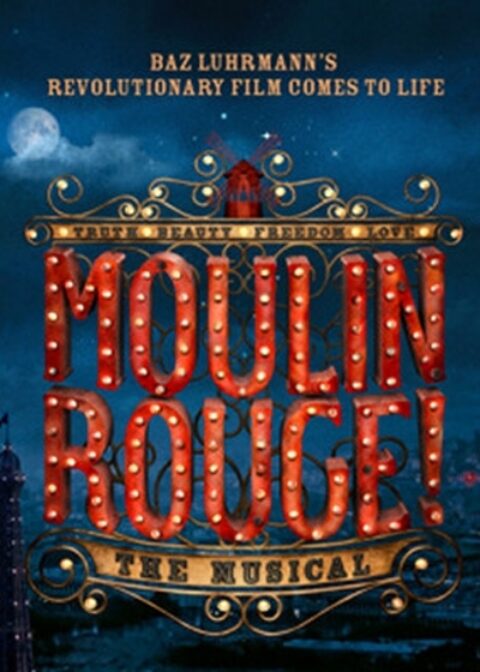The Tumultuous History And Rebranding Struggles For The Lyric Theatre Through The Great Depression And Major Architectural Renovations.
History Of The Foxwoods Theatre On Broadway

Having survived three previous corporate re-brandings since the modernized version of this historic playhouse first re-opened in 1998, the theatre most recently known as Foxwoods is transitioning to its original turn-of-the-century name, the Lyric.
The Lyric Theatre first opened in 1903 on the hot-to-trot thoroughfare of 42nd Street, and while it enjoyed some initial fanfare with such productions as Oscar Straus’ The Chocolate Solider, which ran a then unheard of 296 performances, the theatre really soared during the roaring twenties, with razzle-dazzle comedies that were scored by such musical greats as the Gershwins, Irving Berlin, and Cole Porter and which starred the likes of Fred Astaire and the Marx Brothers.
Challenges During The Great Depression
Sadly, like many businesses of the 1930’s, the Lyric Theatre could not weather the Great Depression and its final show sputtered to a close in 1934. Out of financial necessity, it was converted into a movie house that remained inconsistently operational until 1990 when the City and State of New York essentially repossessed it.
In 1992, the Lyric was placed under the protective auspices of the non-for-profit New 42nd Street Organization, who took over the lease of this landmark location, along with several other classic neighborhood beauties like the Victory Theatre and the Selwyn, in a dignified effort to preserve and honor the neighborhood’s historical integrity and significance.
Major Architectural Renovations
Fast-forward to 1998, when Livent Inc. (a Canadian production company) partially demolished the grounds of the old Apollo and Lyric Theatres, and spent the better part of two years re-inventing the joint space, restoring the front and rear façades of the Lyric to their opulent glory.
Additional work was made to incorporate some of the most impressive interior architectural elements, namely the proscenium arch from the Apollo theatre and the dome from the Lyric, into their new design vision: a technologically-advanced performing arts center with roomy, comfortable, crowd-sustaining modern amenities.
Ford Center For The Arts

Once renovated and unveiled, the theatre became one of the first mascots of big business sponsorship, re-branding itself as the Ford Center for the Arts, named after none other than the Ford Motor Company. Ironically enough, the theatre’s inaugural show, Ragtime, which had initially piqued and secured the vested interest of Ford, did not do well.
The theatre, however, did experience one considerable success with its rousing rendition of 42nd Street, which won the 2001 Tony Award for Best Musical Revival.
Legal And Financial Troubles
In 2005, Livent Inc. found itself embroiled in financial and legal troubles and Clear Channel Entertainment joined collaborative forces with Hilton Hotels, to whom it sold the naming rights, and who un-coincidentally re-named the space the Hilton Theatre.
Under Hilton’s five-year masthead, the theatre played host to a series of rather unremarkable productions including Chitty Chitty Bang Bang, Hot Feet, Dr. Seuss’ How the Grinch Stole Christmas and Young Frankenstein.
Reconstructed Again
In the summer of 2010, after a year of dormancy, the theatre was resurrected yet again, this time by the union of Live Nation Entertainment and Foxwoods Casino, who, not all too surprisingly, re-named it the Foxwoods Theatre. Foxwoods placed all its bets on Spider-Man Turn Off The Dark, The show, however, proved one of the most-talked about theatrical fiascos in Broadway history, inspiring an unwelcome media blitzkrieg of negative press.
This budget-buster of a show (with weekly operating expenditures reported between $1.2 and $1.4 million) was plagued from the get-go with a myriad of technical difficulties and frightening mishaps, injuries and subsequent lawsuits, from which it never really recovered.
Even "Spiderman" Is An Epic Loss
Even a marvel superhero like Spiderman with his minions of millions and rock star roster of brand name backers, producers, directors and choreographers including the seemingly unstoppable, unflappable and impervious Julie Taymor and Bono, could not help Spidey live up to his spectacular promise and prowess, which only goes to show that big money and big names do not guarantee a hit.
In the end, this over-the-top production was an epic loss and co-sponsor Foxwoods Casino has since folded its cards, cashed out and left the building, leaving the revolving door open to the Ambassador Theatre Group, a UK-based firm that bought out the lease last May and announced, just last week, that along with a restorative summer spruce-up, the theatre would reclaim its baptismal name, the ‘Lyric.”
"On The Town" Will Premiere At The Lyric Theatre
Set to premiere at the old-is-new again Lyric Theatre is the beloved classic “On the Town,” a charming rollick of a musical which showcases three sailors searching for love while on NYC shore leave. “On the Town” is quite a departure in choice from the long-rumored Australian blockbuster, “King-Kong,” which had been the expected shoo-in for the enormous 1,900 seat performance space.
But King Kong producers, who recently admitted needing more time to get it right, are probably sheepish, and understandably so, about following too closely on the heels of the Spiderman debacle and running the risk of comparison. And it may just be that the theatre, too, wants to put all the unpleasantness behind it and begin anew with a pretty name and a safe and beloved classic.
Constant Re-branding Hurts This Broadway Theatre
In the case of the Ford turned Hilton turned Foxwoods, constant re-branding did not afford this gem of a theatre any real favors. Corporate sponsorship may have become the norm for sports teams and their stadiums, but what works for baseball doesn’t necessarily work for Broadway.
The Mets can play in Shea or they can play in Citi Field, it doesn’t much matter. They come with a built-in fan base who knows that no matter the emblem on the home stadium, the product they are getting is a good old game of baseball.
The Roundabout Theatre Company
So has corporate sponsorship worked anywhere on the Great White Way? Well, the American Airlines Theatre, main homestead of the beloved Roundabout Theatre Company, is still flying high on the radar. But the crucial difference between the Selwyn turned American Airlines Theatre and the ever-morphing Lyric, lies in the partnership.
Since 1965, the Roundabout Theatre Company has painstakingly created a consistent brand of high caliber theatre. The RTC is trusted amongst theatregoers as a quality evening out. As a result, they have remained loyal to the company, no matter the name emblazoned on the venue in which it presents its works, and in fact so much so, that the American Airlines Theatre is often called the Roundabout Theatre Company by its many devotees. That is a pretty impressive feat, and as close to a home team as we’ve got here on Broadway.


